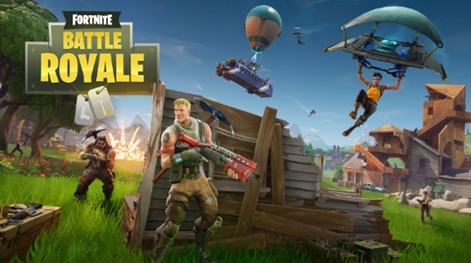Today is International Women's Day and to mark the occasion we'll be highlighting some of the incredible women working in the games industry across both PocketGamer.biz and PCGamesInsider.biz. You can catch all the profiles on PocketGamer.biz here.
Here game UX consultant Celia Hodent details her work in games, her start in psychology and the misconceptions surround the job of user experience experts.
PocketGamer.biz: Can you tell us about your current role and what it entails?
Celia Hodent: I'm working as a game UX consultant in freelance. It mostly entails helping studios making their games more fun and engaging by identifying their biggest UX hurdles.
UX stands for 'user experience' and it's about placing the target audience for a product or service at the heart of the development process, so that games developers can offer the experience intended to their players. It's a discipline - or a mindset - that has been around for decades but it has infiltrated the video game industry only recently.
In practice, I do a lot of training sessions to empower developers with a UX framework - which I used when I was working on Fortnite - that they can apply to any game, and by sharing some cognitive science knowledge with them.
Since the experience players are having with a game happens in their mind, it's important to understand how the brain works and learns. Perception, attention, memory, motivation and emotion all have a critical impact on one's experience of a game.
Based on our current understanding of the human mind, UX principles will then guide developers into adopting their audience's perspective, which will allow them to anticipate and fix issues with their game much faster, in terms of usability (ease of use) and engage-ability (engagement).
In short, I help games developers accomplish their goals faster and more efficiently using science. It's quite the dream job!
What did you study (if anything) that helped you get into games? What courses would you advise for aspiring professionals interested in your areas of expertise?
I studied cognitive psychology, which is at the heart of UX. Aspiring game UX professionals need to have good knowledge of psychology (i.e. human factors psychology), and of course have a good understanding of how games are made.
There are two main career paths in game UX: UX design, and UX research.
UX designers usually have a background in HCI (human-computer interaction) and their main concerns are interaction design and information architecture. UX researchers usually have a background in human factors psychology, experimental psychology or cognitive psychology.
They need to know how to run a scientific research (designing an experimental protocol, analysing results, etcetera).
Data scientists often work very closely with UX researchers to figure out what players are doing, why, and what the core team should do about it.

For those interested, I compiled a list of resources on my website, which can be a good starting point for aspiring game UX professionals.
Where did you get your start in games and how did you progress into what you're doing now? Is this something you ever imagined yourself doing?
Even though I grew up playing a lot of video games, I had no idea I would end up helping making them one day! I was digging science as a kid, and understanding the human mind became fascinating to me as a teenager, so a career in cognitive psychology made a lot of sense to me.
I was just lucky to realise one day that games makers could use knowledge in psychology to make better games. I crossed the path of Ubisoft as I was having this revelation, right at the moment when they were interested in recruiting profiles with a background in neuroscience or psychology, over 10 years ago. Serendipity got me in the games industry.
What part of your role do you find most fulfilling?
Solving problems and interacting with a wide variety of people. My job is like conducting an investigation to figure out (or anticipate) why a game is not offering the experience intended to its target audience.
Disentangling it all is exciting, but also quite nerve-racking since making games is hard and the pressure is often strong.
What I love about working in video games is that I get to interact with a lot of different people on a project. Artists, designers, engineers, musicians, producers, researchers, community managers, marketing and business people, etcetera. And I'm very lucky to be able to work with game developers from various countries and cultures.
We know that having good diversity and, even more importantly, inclusivity on a team are key to being more successful. Well, it's also very enriching on a personal level. Being able to interact and work with many different people with different roles, from different parts of the world is, by far, the most fulfilling part of my job.
Do you think there are any misconceptions, public or professional, surrounding your area of expertise?
Most disciplines come with their misconceptions and UX certainly has its own. I actually wrote a whole blog post about this a few years ago.
Women and people of colour often struggle to have a seat at the table and, when they do, make their voice heard.Celia Hodent
In a nutshell, games developers mostly fear that UX practitioners will distort their artistic or design vision, although having a UX mindset and framework is, on the contrary, all about making sure that their intention is precisely what players will experience in the end.
Is there anything about the job/industry you wish you would have known when first joining?
I was quite surprised to discover how much games developers 'crunch', especially since we know that overtime, stress and sleep deprivation have a negative impact on creativity and on our ability to think outside of the box.
Sadly, I also discovered that this industry is not diverse at all. Women and people of colour often struggle to have a seat at the table and, when they do, make their voice heard.
It's quite disheartening and, frankly, it's also counter-productive if we were to consider the business aspect only. Let's hope that change is on the way.
What other advice do you have for someone looking for a job in this profession?
Make stuff and network! If you're interested in UX research, start a blog and analyse with a UX mindset (and humbly) the games that you play.
If you're interested in UX design, start a portfolio demonstrating your ability to iterate your way towards making the design choices and tradeoffs that you believe are best given the audience and the experience intended.
Networking is also very important in this industry, quite small after all. Connect with developers on Twitter or Linkedin, go to conferences, find a mentor, etcetera.
Is there anyone in the games industry (or anyone else in general) who inspires you?
Yes, many people! From iconic designers such as Brenda Romero (Editor's note: we've interviewed her here!) to the unsung heroines and heroes working in the trenches everyday to create the magic.
You can read more profiles of some of the incredible women working in the games industry right here.
Celia Hodent delivered a special workshop on 'How Neuroscience And UX Can Impact Game Design' at Pocket Gamer Connects London conference. The next PGC will take place in Seattle on May 13th to 14th. The event will be back in London in 2020.





















